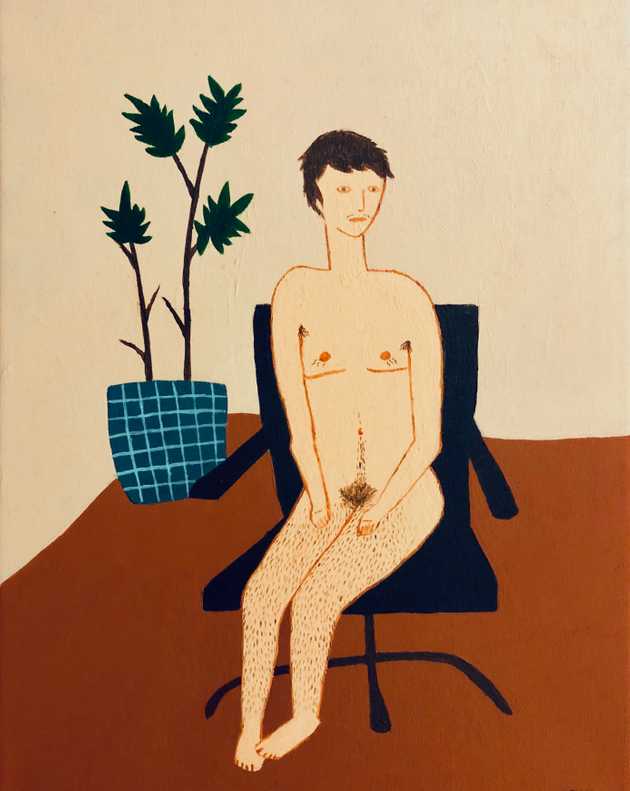An Interview with R.O. Kwon
Interview by Sabrina Li
Sabrina Li: In “Legends of the Seoul Dogs,” I noticed that the form of the story is that of the Christian Catechism. I found this structure particularly interesting, since it’s used as an educational tool to teach children about Christianity, and I found that particularly relevant to the boy’s growth and relationship to religion and his father. Clearly, the structure introduces religious elements into the story and casts it into the realm of myth, but what were you attempting more specifically to impart with this structure?
R.O. Kwon: This is a great question, and I love what you say about catechisms. When I write, though, I don’t think about imparting anything—I don’t have overarching messages in mind. Instead, I’m trying to be as truthful as I can be. I think this is part of what I love about writing fiction. It lets me push aside facts to attempt to get at truths.
Li: How did you intend for violence to function in the story––from the school boys beating the boy up, to the boy unleashing the dogs? The violence is particularly gendered and focused on men and boys and the violence that comes with turning into a man, yet the boy, according to the superficial narrative, never actually inflicts violence on anybody––it’s his dogs, his whistling for them, that creates destruction. I found this indirectness of violence to be so fascinating. What was your intention with this?
Kwon: Here, too, and in response to your next question, I think I’ll be most honest if I limit myself to saying I don’t write fiction with overt intentions. I started the story with this boy and his Jindo dogs, and then I followed them.
Li: This story seems to be dealing a lot with what is true and what is false, especially concerning the boy’s view of his father and mother: is his father’s god the true god, are his father’s sermons true, is what the father tells the boy about the woods true, is what his mother says to the boy over the phone true? What is the difference between the real and the imaginary that you see emerging in this story? How does the idea of the mythic help us cope with ideas of what “home” is, racism, immigration, etc.? Why do we self-mythologize, why are we so drawn to myth?
Kwon: The story was very interested in exploring what’s real and what’s less real, but I’m not sure I have much to say about the why. I love an anecdote about T.S. Eliot: once, he was asked what he meant when he wrote, in “Ash Wednesday,” “Lady, three white leopards sat under a juniper-tree.” He replied, “I meant, ‘Lady, three white leopards sat under a juniper-tree.’” I don’t think he was trying to be tight-lipped; I imagine he was indicating that the line conveyed as much of his intention as was possible, and he couldn’t add more.
Li: How does religion specifically function in this idea of myth and legend that you have established in the story? Is religion a myth given to us, or told by ourselves, or something in-between? In both THE INCENDIARIES and “Legends of the Seoul Dogs” you deal with this loss of religion, whether voluntary or involuntary. How does myth-making intersect with this?
Kwon: Everything I write, so far, has to do with the God and Christian faith I lost when I was seventeen. I grew up so religious I thought I was going to be a preacher or missionary; the loss was terrible, one I’m only starting to realize I might grieve until I die.
Li: What inspired this story and how did it change from draft to draft? What always remained the same and what was lost along the way?
Kwon: The story started with a boy and his dogs. I grew up with Jindos myself, and I found they wanted to be in my fiction.
Li: How has your writing changed from being an undergraduate at Yale to now? What were you writing about during your college years and how did your time at college shape you? Is there anything you want to say to our undergraduate readership/writers?
Kwon: A lot of my obsessions have remained the same; how I grapple with them has changed. Is there anything I want to say to undergraduate readers and writers, let’s see…okay, here’s one thought. If you want to be a writer, consider not worrying about your grades. One of my more sizable regrets about college is that I sometimes made choices that had to do with keeping my grades high. I graduated Phi Beta Kappa from Yale. Who gives a shit. No one. Meanwhile, the exciting philosophy class I didn’t take because people said the professor never gave As—I deeply, frequently regret not having taken that class.
Li: Even though there is a palpable absence of women in this short story (and the woman character in the story is physically “absent”), your complex treatment of male violence and the pressures of growing into a man differentiate it from other male-centric stories I’ve read. Is there a way in which this story could be considered “women’s fiction” or “feminist fiction”? Do you find the labels of women’s fiction and feminist fiction to empower your writing, limit its scope, be a marketing tool, or something else? Does the female have to be at the core of a story for it to be considered “feminist”?
Kwon: Thank you for what you say about this story and male violence—I love that. I think and hope that everything I write, including this story, and definitely including my first novel, The Incendiaries, is deeply feminist.




